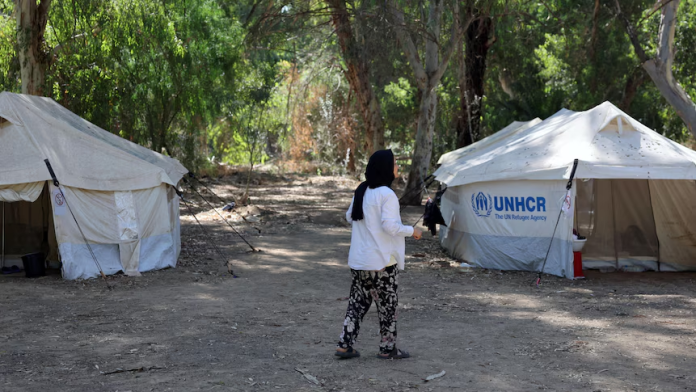Michael O’Flaherty, the Council of Europe’s Commissioner for Human Rights, urged the government of Cyprus to allow nearly three dozen asylum seekers to leave the UN-controlled buffer zone where they had been forced to huddle in tents for months, according to AP News.
O’Flaherty said in a letter released on Wednesday that despite receiving food, water and other assistance, some 35 people continued to face “poor living conditions.”
The migrants, who come from countries, such as Syria, Iran, Sudan, Afghanistan and Cameroon, are stuck in a buffer zone that separates the breakaway Turkish Cypriot population north of the island nation and the southern Greek Cypriot population.
His letter came a couple of months after the UN refugee agency also urged the Cypriot government to allow migrants to seek asylum. The number of migrants crossing the north-south border has fallen sharply in recent months after Cypriot authorities introduced a series of tough measures, including the installation of cameras and special police patrols along sections of the 180-kilometre (120-mile) buffer zone.
Earlier this year, Cyprus suspended the processing of asylum applications from Syrian citizens after granting international protection to 14,000 Syrians over the past decade.
The Cypriot president said the authorities would “make every effort” under international law “to prevent the normalisation of irregular crossings” through the buffer zone. As for the asylum seekers, Nikos Christodoulides said the government was offering supplies and medical assistance and assured O’Flaherty that “we will resolve this matter within the next few weeks” without going into details.
Earlier this month, the European Court of Human Rights ruled that Cyprus had violated the right of two Syrian nationals to seek asylum in the island nation by keeping them and more than two dozen others aboard a boat at sea for two days before sending them back to Lebanon.
